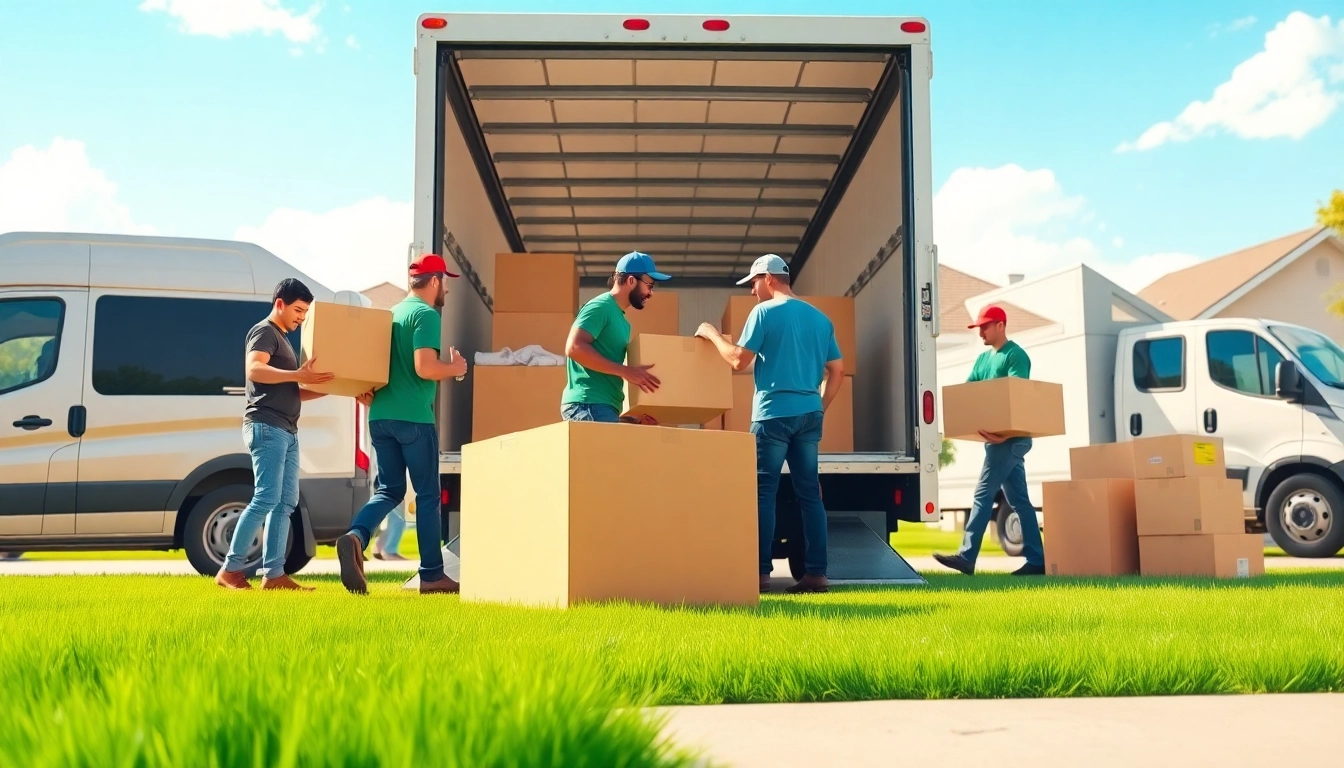Understanding Moving Services
In today’s fast-paced world, moving from one location to another can be a significant life event filled with excitement and stress in equal measure. Understanding the different types of moving services available is crucial for a smooth transition. Whether you are relocating your home or office, choosing the right moving company can greatly enhance your experience and reduce the overall burden. For those considering a move, exploring the full range of services available at https://bennettsmoving.com/ can provide valuable insights and assistance tailored to your unique needs.
Types of Moving Services Offered
Moving services can be broadly categorized into several types, each catering to specific needs:
- Residential Moving: This involves the process of relocating your home, including packing your belongings, transporting them, and unpacking them at your new location. This often encompasses local moves within the same city or long-distance moves to a different state.
- Commercial Moving: Ideal for businesses, this service involves relocating offices or commercial spaces, ensuring that business activities resume as soon as possible. It often requires specialized equipment and logistics.
- Long-Distance Moving: This refers to moves that typically extend beyond a specific estimated distance (often over 100 miles). This type of relocation requires meticulous planning and coordination.
- International Moving: For those moving overseas, international moving services involve a complex set of logistics that includes customs documentation and potentially overseas shipping.
- Piano and Specialty Item Moving: Some items, like pianos, fine art, or antiques, require special handling and packing techniques, often provided by specialists.
- Storage Services: Many moving companies offer temporary or long-term storage solutions for customers who need a place to store their possessions during the transition.
Benefits of Choosing Reliable Movers
Selecting a reliable moving company can greatly impact your moving experience. The key benefits include:
- Efficiency: Professional movers are trained to handle logistics seamlessly, ensuring time and resources are utilized efficiently.
- Safety: Experienced movers know how to protect your belongings during transportation, minimizing the chances of damage.
- Peace of Mind: By entrusting your move to professionals, you can focus on other important aspects of the transition, such as settings up your new space.
- Insurance Options: Reliable moving companies offer various insurance options, providing additional security for your important items during transit.
Key Considerations Before Hiring Movers
Before deciding on a moving company, consider the following:
- Credentials: Verify the company’s licenses and insurance credentials to ensure they are legitimate and trustworthy.
- Reviews and Testimonials: Research customer feedback and testimonials to gauge service quality and reliability.
- Transparency in Pricing: Ensure the company provides a clear breakdown of costs to avoid any surprise charges.
- Service Offerings: Check if the company offers the specific services you need, such as packing assistance or storage options.
Planning Your Move
A well-structured plan can make your moving process easier and less stressful. Here are some steps to enhance your preparation:
Steps to Prepare for a Seamless Move
Preparation plays a vital role in ensuring a seamless moving experience. Below are essential steps to consider:
- Create a Moving Checklist: Document all tasks you need to accomplish before, during, and after the move.
- Sort and Declutter: Go through your belongings and decide what to keep, sell, or donate. Reducing clutter before packing can save you time and effort.
- Communicate with Your Movers: Keep clear communication lines open with your moving company, discussing timelines and expectations.
- Arrange Utilities Transfer: Schedule the transfer or cancellation of utilities and address changes well in advance.
Creating a Moving Timeline
Having a clear timeline can streamline your move. Here’s how to create one:
- Assign specific dates to tasks such as organizing, packing, and confirmation of moving services.
- Set reminders for critical deadlines, such as utility cut-offs and final cleanout dates.
Essential Packing Tips for Homeowners
Packing can be one of the most time-consuming parts of moving. Here are tips to pack efficiently:
- Use Quality Packing Supplies: Invest in sturdy boxes, packing paper, and tape to protect your belongings.
- Label Boxes: Clearly label each box with its contents and the room it belongs to for easier unpacking.
- Pack Like Items Together: Keeping similar items together can help with organization and reduce the chances of damage.
Long-Distance vs. Local Moves
Understanding the nuances between long-distance and local moving can help you plan accordingly.
Understanding the Differences Between Move Types
While both local and long-distance moves aim to relocate, there are key differences:
- Distance: Local moves generally fall within a particular area or city, while long-distance moves typically span over 100 miles or more.
- Cost Structure: Long-distance moves often carry different pricing structures, considering mileage and weight of the load.
- Planning Requirements: Long-distance moves require more planning and logistics than local moves due to the extended journey.
What to Expect with Long-Distance Moving Services
Long-distance moving services entail various components which may include:
- Initial Assessment: Movers will often conduct a walkthrough to assess what needs to be relocated.
- Detailed Estimates: Expect itemized quotes based on distance, volume, and required services.
Cost Implications of Different Moving Options
Costs can vary greatly depending on the type of move:
- Local Moves: Charged typically on an hourly basis plus any additional services rendered.
- Long-Distance Moves: Quoted based on hundreds or thousands of miles traveled, with factors such as fuel and labor included.
Ensuring a Secure Move
Ensuring the safety and security of your possessions during your move is paramount. Here’s how you can make it happen:
How to Protect Your Valuables During Transit
To safeguard your valuables, consider the following:
- Insurance: Confirm if your moving company provides insurance options covering potential damages during transit.
- Special Handling: For fragile items, request specialized packing and handling services.
Insurance Options for Your Move
Understanding your insurance options can provide peace of mind:
- Basic Coverage: Standard liability coverage is typically included and compensates based on weight.
- Full Valuation Protection: This offers a higher level of protection based on the replacement value of items.
Quality Control and Moving Service Metrics
To ensure a quality moving experience, make use of various metrics:
- Tracking Systems: Many companies provide online tracking of your shipment’s status.
- Customer Service Ratings: High customer satisfaction ratings are indicative of reliable service.
Post-Move Considerations
Once you’ve relocated, there are essential steps needed to settle into your new space:
Settling into Your New Home
To make your new place feel like home, consider the following:
- Familiarize Yourself with the Area: Explore amenities, grocery stores, and other local resources.
- Create a Comfortable Living Space: Unpack and set up your favorite items first to help establish comfort.
Unpacking Strategies for Efficiency
To unpack efficiently, implement these strategies:
- Prioritize Essential Items: Begin with items you need immediately, such as kitchen essentials and bedroom necessities.
- Follow Your Moving Plan: Complete unpacking room by room, sticking to the plan created during packing.
Evaluating Your Moving Experience
Taking time to reflect on your moving experience can help in future relocations:
- Gather Feedback: Share your experience with the moving company through reviews, providing insights that may assist future clients.



